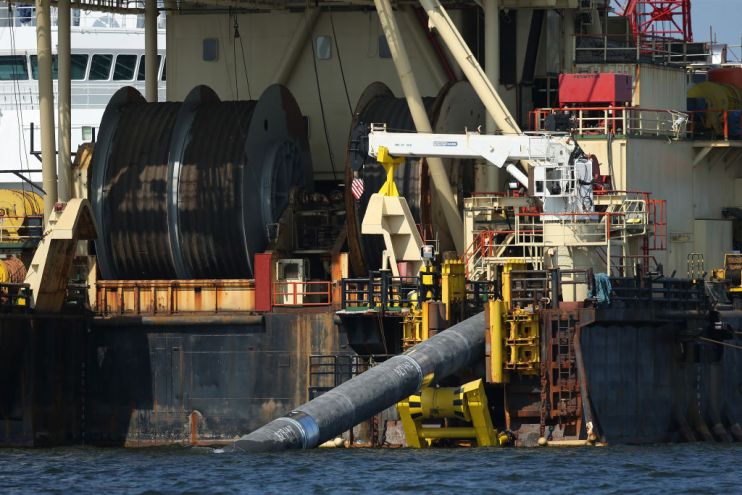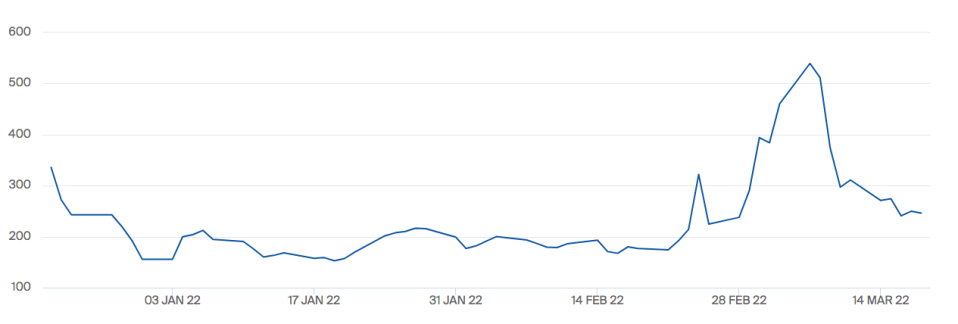Gas prices volatile amid geopolitical uncertainty

Natural gas prices have dropped heavily from historic peaks over the past week, with the UK benchmark tumbling from an eye-watering £8 per therm to £2.46 since March 7.
Wholesale costs remain historically elevated with prices at 46p per therm this time last year.
However, the drop-off reflects the wild volatility of the current gas market which seems highly influenced by ensuing geopolitical tensions.
OANDA senior market analyst Craig Erlam argued that gas prices have fallen amid reports of negotiations between Russia and Ukraine, which has eased fears of supply shortages and conflict disruptions.
The European Union (EU) so far has also failed to follow the US in restricting Russian gas supplies to its markets, with the trading bloc still split over energy sanctions.
He told City A.M.: “Negotiations are not guaranteed to lead to an agreement that involves Russian troops leaving Ukraine, and we’ve already seen plenty of setbacks, but the fact that they are happening and reportedly progressing is helping to keep some of the pressure off gas prices.”
The energy analyst also warned that another rally in prices is possible – with prices spiking in December and March over the past six months – as the possibility to reduced supplies remains, making negotiations a key weight on elevated prices.
Erlam noted: “While Russian exports have continued and the EU has been exploring alternative options over the longer term, the risk of further sanctions disrupting flows, as we’ve seen with oil, or gas being weaponised remains. As long as negotiations are happening, that risk is reduced.”

EU scrambles for supplies from global markets
So far, the EU has staved off the prospect of blackouts over the winter with top-ups in liquified natural gas (LNG) – chiefly from the US.
It has also pushed for supplies from non-Russian markets, although the bulk of LNG in the Gulf States has been secured with long-term contracts from Asian markets.
Nevertheless, German reached a long-term gas supply deal with Qatar yesterday – easing supply fears.
The trading bloc relies on Russia for around 40 per cent of its natural gas – with the number being higher in key economies such as Germany – and has suffered over the past six months amid cut export growth from Kremlin-back gas giant Gazprom.
Last week, natural gas stores were reported as only being 26 per cent full – with the EU now set to bring forward proposals to ensure storage across the continent is at 90 per cent ahead of next winter.
Commerzbank analyst Carsten Fritsch also highlighted there have been fewer gas bookings from the continent over the past few weeks, despite Russia committing to supplying global markets – dropping 20 per cent over the past week.
He also noted that no gas at all has arrived in Germany via the Yamal pipeline through Poland since 15 March, while 20 per cent less has also been delivered via Nord Stream.
Nathan Piper, head of oil and gas research at Investec, told City A.M. that while prices have dipped – he expected them to remain historically high amid sustained market tensions.
He said: “UK gas prices have eased somewhat as milder conditions reduce heating demand and near term risk of Russia restricting gas supply passes, for now. However we expect gas prices to remain elevated, compared to the long term average as Europe competes with Asia for incremental LNG volumes.”